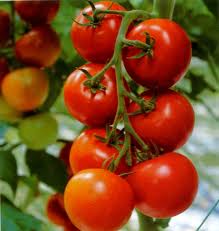
Destroying Food
“This know also, that in the last days perilous times shall come.”
2 Timothy 3:1
Perilous Times and Franken food
EU dismissed million citizens' petition against Genetically Modified Crops.
by Staff Writers
Brussels (AFP) Oct 6, 2010
European Union officials dismissed Thursday a first-ever call by one million people to change an EU law, with a petition drawing on new citizens' rights aimed at freezing GM crop cultivation.
The petition is the first test of the Citizens' Initiative, a new tool in the EU's year-old Lisbon Treaty enabling the public to ask Brussels to change the law.
Environmental campaigners Greenpeace and Avaaz had hoped to hand the list of a million names to European Commission president Jose Manuel Barroso in person, but the head of the EU executive refused a meeting, delegating Health Commissioner John Dalli instead.
"The Citizen Initiative is not yet launched, we can't accept any initiative at this stage. It is not yet valid," Dalli said.
"We have agreed to receive the petition today but at this point I can't commit on action taken by the commission."
The head of Greenpeace Europe, Jorgo Ris, said he was concerned by the commission's stand.
"This is the first time that EU citizens have exercised their right and the commission has no political reason to reject the initiative," he said.
An agreement was reached this week in Brussels on how to implement the new grassroots idea but it has yet to be voted through the European Parliament next week and approved by states, who have one year to pass it into national law.
Greenpeace, however, argues on the basis of independent legal advice that the right is sufficiently precise in the Treaty to be applicable now.
Europe currently has authorised two GM crops -- a maize strain for animal feed and a potato for paper-making -- but decisions on another 15
are deadlocked.
Some countries and regions have banned cultivation unilaterally, or declared themselves GM-free, with products containing traces blocked at ports, which the commission says risks breaching WTO guidelines.